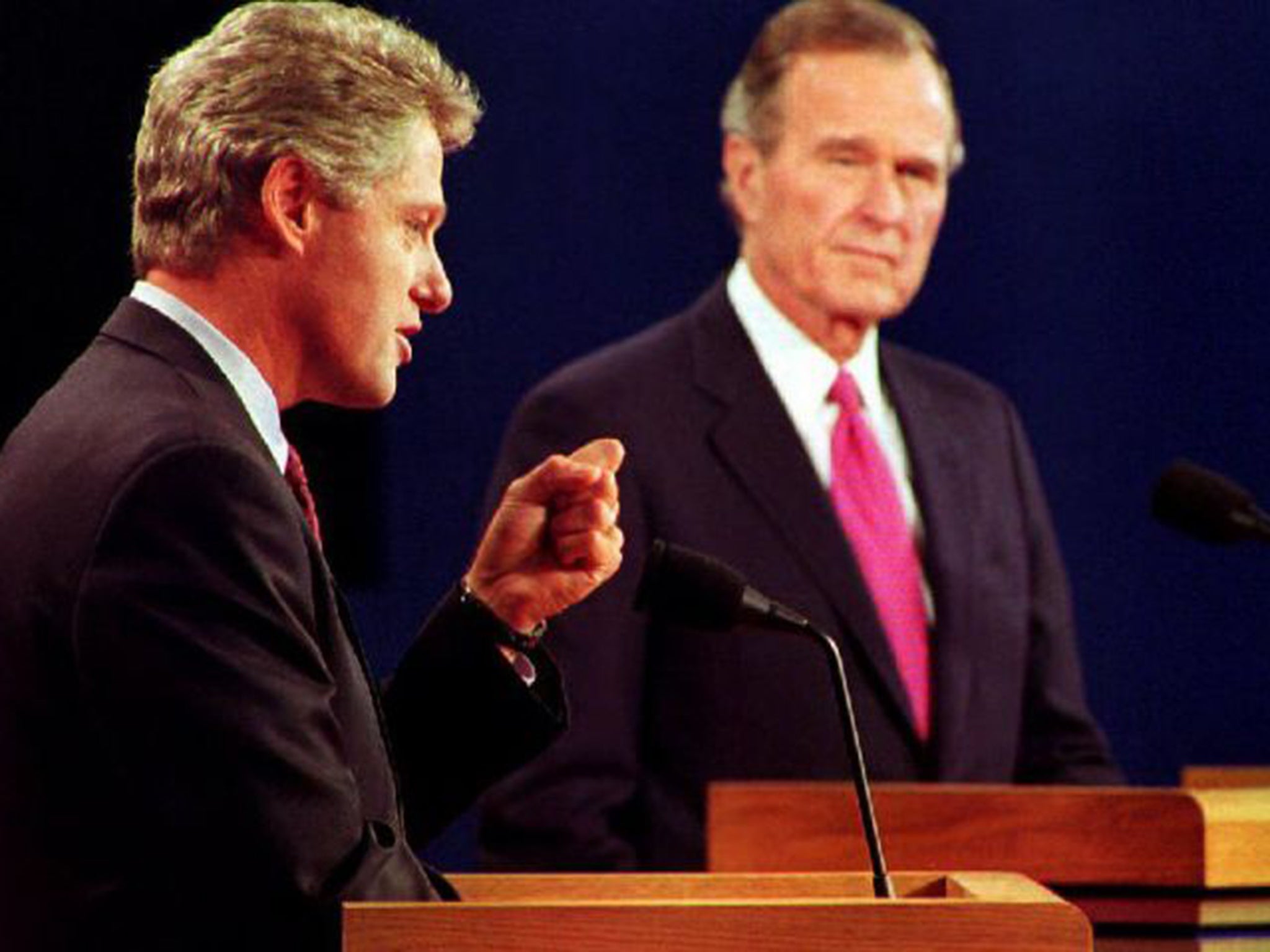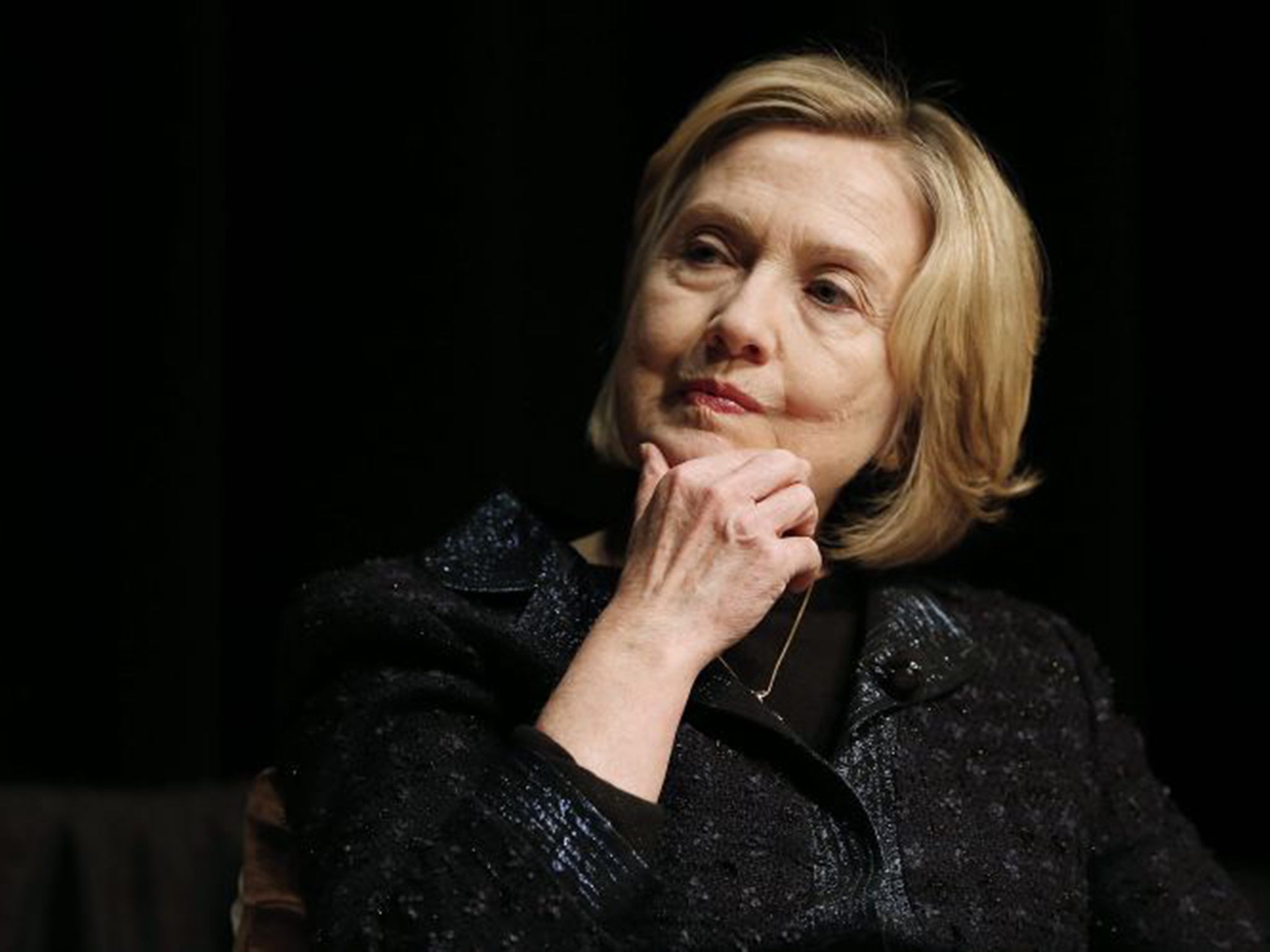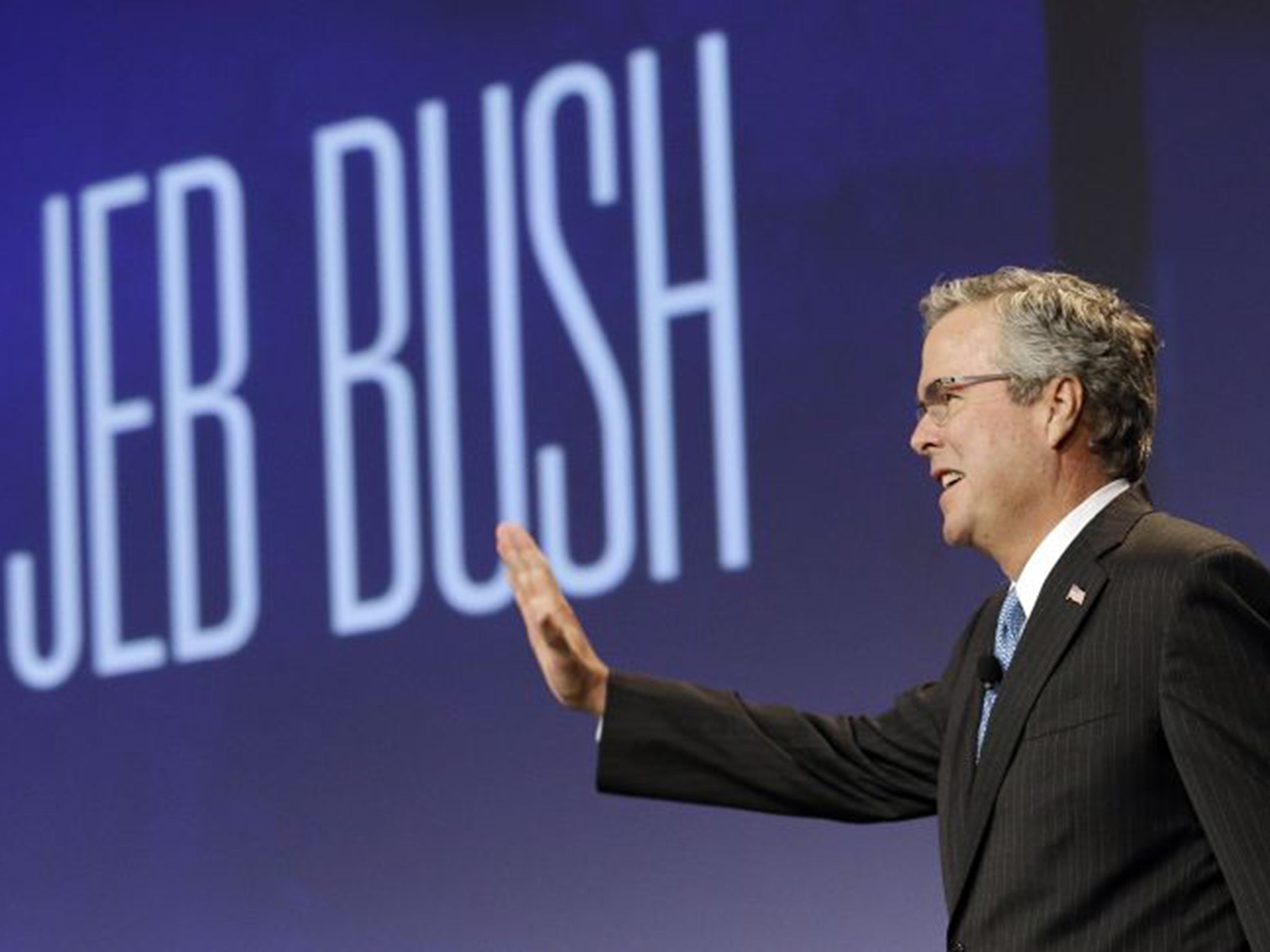America: Land of the free, home of the political dynasty
Out of America: These days in the US things are pretty much stuck where they are, both in politics and society at large


Exactly 24 years ago, I started work as a correspondent in Washington, primed for my first presidential campaign. That was in 1991, and the match-up that emerged was Bush versus Clinton. Now we’re in 2015 and what may lie in wait, six presidential cycles later? Bush versus Clinton, the rerun.
Not the same individuals, to be sure. Then it was the first president Bush up against Bill Clinton; now it’s Bill’s wife, Hillary, who could face Bush senior’s youngest boy, Jeb, in the presidential election next year – a bare eight years after his oldest son, George W, left the White House. But then again, why the surprise? These days in America things are pretty much stuck where they are, both in politics and society at large.
Once upon a time it was Britain and old Europe where nothing changed: but where are the historic British ruling families: the Cecils, Chamberlains, Churchills, Foots and Asquiths? Gone to the [political] graveyard, every one. Some detect stirrings among a younger generation of Blairs, Prescotts or Straws. But nothing is yet proven.
It should be pointed out, of course, that despite its cherished image of anyone-can-make-it egalitarianism, when it comes to government, America always been a pretty dynastic place. The Bushes – 41st and 43rd presidents – weren’t the first father and son duo in the White House: that precedent was set two centuries ago by John and John Quincy Adams, the second and sixth presidents. Since then we’ve had the Roosevelts, and Tafts and Kennedys in government. But these days, the déjà vu feels worse than ever.

Take Mitt Romney, presidential candidate in 2008 and 2012 (and, it would seem, in 2016 as well), son of George Romney, Republican presidential candidate in 1968. Or Rand Paul, the young Republican senator and supposedly “new look” 2016 contender, who on closer inspection proves to be the son of Ron Paul, White House candidate in 1988, 2008 and 2012. But all pale beside the Bushes and the Clintons.
Not since Richard Nixon have Republicans won a presidential election without a Bush on the ticket; if a Bush/Clinton contest comes to pass in 2016, it would mean the two families will have occupied the White House for 24 of the past 32 years – 28 out of 36 if the winner is re-elected in 2020. And you can project this rivalry into the future: any takers for Jeb’s son, 38-year-old George P Bush (elected Texas Land Commissioner in 2014) against Chelsea Clinton (who has been making noises about the joys of public service) in 2030 or 2034? The way things are going, it’s no joke.
As recently as 2013, Barbara Bush came out against Jeb going for the family trifecta: “It’s not just four families or whatever,” she told an interviewer. “There are other people out there that are very qualified and we’ve had enough Bushes.” But she’s piped down now – a silence born, one assumes, of a belated realisation of dynastie oblige.
But why do the same names crop up across the political generations? The answer is simple; many of the same factors underlie the broader stasis that grips American society.
This country’s hoariest cliché is “the American Dream”, the notion that in the US – as nowhere else on earth – anyone, from whatever background, can succeed by dint of hard work. No presidential speech is complete without a reference. The trouble is that while the concept might have been valid once, it is no longer.
Studies suggest that social mobility in America is less than in Britain and Canada – and even Europe, so often mocked here for social sclerosis and inertia. The fact is that middle-class incomes, in real terms, have barely budged in three decades. Meanwhile if you’re born rich, you tend to stay that way, and likewise if you’re poor. One reason is the lack of a social safety net, another is the importance placed by employers on a college degree, which in turn can only be paid for by college-educated parents (or often crippling loans).

In a supposedly classless society, equality of opportunity is diminishing, while the unequal distribution of wealth only increases.
More and more, people are defined and trapped by their backgrounds. And so it is with politicians. And in the case of politics, the advantages passed within politically prominent families could hardly be greater: name recognition and money, the mother’s milk of political campaigns, be it for Texas land commissioner or the White House.
Bush senior was mocked for having risen not because of his merits but because, as son of Prescott Bush, a powerful banker and US senator, he was a scion of the Republican establishment: as the cutting baseball metaphor used by one of his opponents had it: “He was born on third base and thinks he hit a triple.”
The same applied even more when the mantle of succession fell upon his eldest son. During his 2000 campaign, George W Bush dismissed the notion that his illustrious lineage had helped: “I inherited half of [my father’s] friends and all of his enemies.” But everyone knew his name – and with those friends came access to a national fundraising network, and a honed political machine.
Of course it’s not always that way. Every now and then a genuine outsider wins it all, breathing new life into the notion that in America all is still possible. In 1975 Jimmy Carter was an obscure former governor from the south; and in 2008 Hillary Clinton, with CV, name recognition and political connections to die for, was ultimately no match for a man who four years before was a humble state legislator from Illinois.
But Carter and Barack Obama, one fears, may be exceptions that prove the rule. Neither has yet declared their candidacy, but Hillary is overwhelming favourite for the Democratic nomination, while Jeb is the closest thing there is to a frontrunner in an admittedly wide open Republican field.
But please, Lord, after 24 years, spare me a Bush/Clinton rerun. And oddly, against all logic, I’ve a hunch my prayer will be heard.
Join our commenting forum
Join thought-provoking conversations, follow other Independent readers and see their replies
Comments